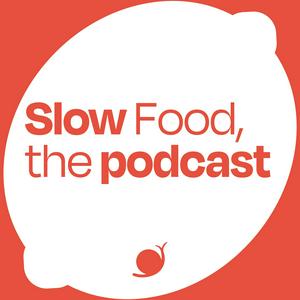What are some tips to spot the latest food trends? What is new in the food scene around the world? Are these trends supporting a shift towards a more sustainable food system? Today I am recording a live conversation with Gijsbregt Brouwer, founder of De Buik and inspiring food trend watcher in Rotterdam, The Netherlands. This is a co-production between Slow Food, The Podcast and Bekt Lekker, Gijsbregt's podcast.
Hosts and guests: Valentina Gritti and Gijsbregt Brouwer
Production: Klets Media
With inputs from: Chef Jam Melchor from The Philippines, Oguniiyi Akinade and Eniola Okeola from Nigeria, Ariinda Ronald from Uganda, Roger Maldonado from Bolivia, Lea Balcerzak from Poland and Nahuel Burracco from the Pollenzo Food Lab, at the University of Gastronomic Sciences in Italy.
A project by Slow Food Youth Network (SFYN)
**Support our podcast by giving us a good rating on your favourite podcasting platform!


